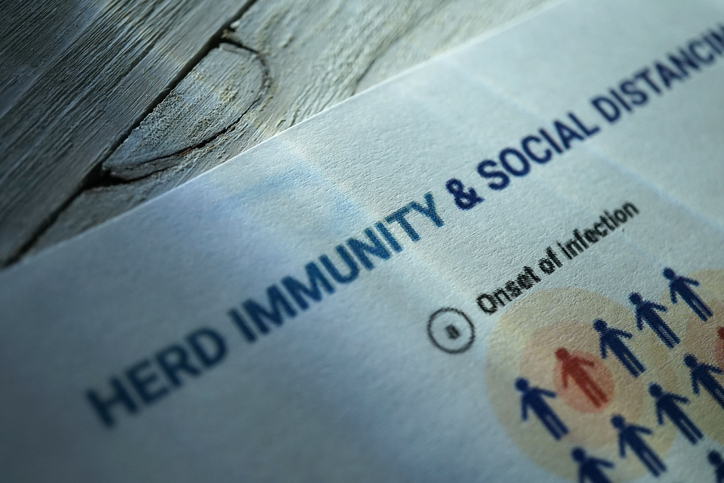
Photo for representational purpose only. iStock
London, June 24
Herd immunity to COVID-19, which happens when so many people in a community become immune to the disease that it stops spreading, could be achieved with fewer people being infected than previously estimated, according to a new study.
Scientists, including those from the University of Nottingham in the UK, noted that herd immunity develops when individuals contracting the disease build up natural immunity, and by people receiving a vaccine.
They explained that when a large percentage of the population becomes immune to a disease, the spread of the disease slows down or stops and the chain of transmission is broken.
In the current study, published in the journal Science, the researchers devised a mathematical model categorising people into groups reflecting age and social activity level to determine the threshold of the population that needed to be immune for herd immunity to develop.
When they factored in differences in age and social activity in the model, they found that the herd immunity level reduced from 60 to 43 per cent.
The 43 per cent figure, according to the scientists, should be interpreted as an illustration rather than an exact value, or even a best estimate.
For Covid-19, they said herd immunity is often stated as around 60 per cent, a figure derived from the fraction of the population that must be vaccinated in advance of an epidemic to prevent a large outbreak.
This figure assumes that each individual in the population is equally likely to be vaccinated, and hence immune, the scientists explained.
However, they said this is not the case if immunity arises as a result of disease spreading in a population consisting of people with many different behaviours.
"By taking this new mathematical approach to estimating the level for herd immunity to be achieved we found it could potentially be reduced to 43 per cent and that this reduction is mainly due to activity level rather than age structure," explained study co-author Frank Ball from the University of Nottingham.
According to the scientists, the more socially active individuals are, the more likely they are to get infected, than the less socially active ones -- and they are also more likely to infect people if they become infected.
The researchers said the herd immunity level is lower when immunity is caused by disease spreading than when immunity comes from vaccination.
They believe that the findings have potential consequences for the release of lockdown measures across the world, and suggested that individual variation is an important feature to include in models that guide policy. PTI
Join Whatsapp Channel of The Tribune for latest updates.



























